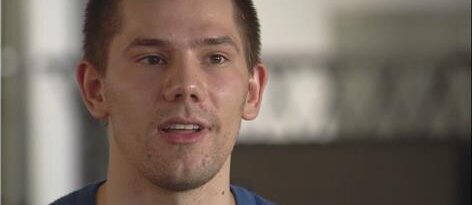Master of Physics - Nanophysics
The Master of Science in Physics – Nanophysics is unique for its focus on the fundamental physics of the exciting phenomena in nanosystems. The programme focuses on modern theoretical models and computational techniques, electron microscopy and spectroscopy for the characterization of nanostructures and practical computational and experimental experience.
Why study the Master of Physics in Antwerp?
Follow Master of Physics students Ivan and Alexis, as they attend classes and experience life at the University of Antwerp. Prof Milorad Milosevic (coordinator of the Master programme) and Prof Sara Bals (spokesperson at the EMAT laboratory) elaborate on the strenghts of this Master programme.

Programme content
The Master’s programme in Physics with specialisation in nanophysics provides advanced courses about the fundamental physics that determine the structure and governs the dynamics at the nanometer scale. Topics of direct interest are quantum physics and chemistry, nanoparticles, nanotubes and fullerenes, graphene, nanobiology, nanomagnetism, superconductivity, electron microscopy and spectroscopy, tomography etc. The courses are taught by renown scientists in their respective fields. The research teams hosting the programme have a long tradition in theoretical, computational and experimental techniques in nanophysics. The interaction with professors, PhD students and other faculty members is encouraged as it enhances students’ research competences. Ultimately students learn to think ‘out-of-the-box’ and to respond adequately to challenges of emerging and future technologies.
For their Master’s thesis, the students can perform frontier research in theoretical, computational as well as experimental nanophysics at the following research groups, to name a few:
High standards in research and education
The University of Antwerp is known for its high standards in education and its internationally competitive research. Its roots go back to 1852. The University has approximately 15 000 students. The University of Antwerp is an international university. International students from all over the world make up 12% of the total student population. The University participates in most European education programmes and has established partnerships with universities around the world.
Excellent research environment
Playing a prominent part in international research, the Physics Department works together with universities and research institutions all over the world. The research carried out by its academics is fully integrated into the courses taught within the programme. The Physics Department has a large staff of national and international researchers and lecturers, and hosts the NANO Centre of Excellence. The Physics Department offers a very strong and broad PhD programm
Competence-driven teaching
The Physics Department provides high-quality, student-centred teaching with an emphasis on project-based activities and autonomous problem-solving. Significant attention is given to project work and interactive forms of teaching such as seminars, tutorials and small-group teaching.
Nanomat Master programme
The Master of Physics - Nanophysics is an integral part of the Nanomat Master’s programme, with partners in France and Sweden. Students spending a semester at the Université Pierre et Marie Curie (Paris, France) or the Uppsala University (Sweden) receive a bi-diploma. Students have the possibility to study in other universities, laboratories and scientific institutions in Europe to diversify their competences. This way they acquire profound and personalized excellency in nanophysics, unattainable otherwise
Career opportunities
Graduates receive a Master’s degree of Science in Physics, with a specialisation in Nanophysics, thus providing a diploma in the general field of Physics as well as in the expert field of Nanophysics. The programme is part of the Nanomat Master’s programme, and students spending a semester at the Université Pierre et Marie Curie (Paris, France) or the Uppsala University (Sweden) receive a bi-diploma.
Graduates of our programme are prepared for specialized activities in the field of industry, research and development, but also science related business and education. The acquired competences will contribute to the easy integration of the graduates in the academic world, the European R&D base, as well as in the private job market. A large fraction of our graduates continue their education in a PhD programme, for which they will have facilitated access at the University of Antwerp.


